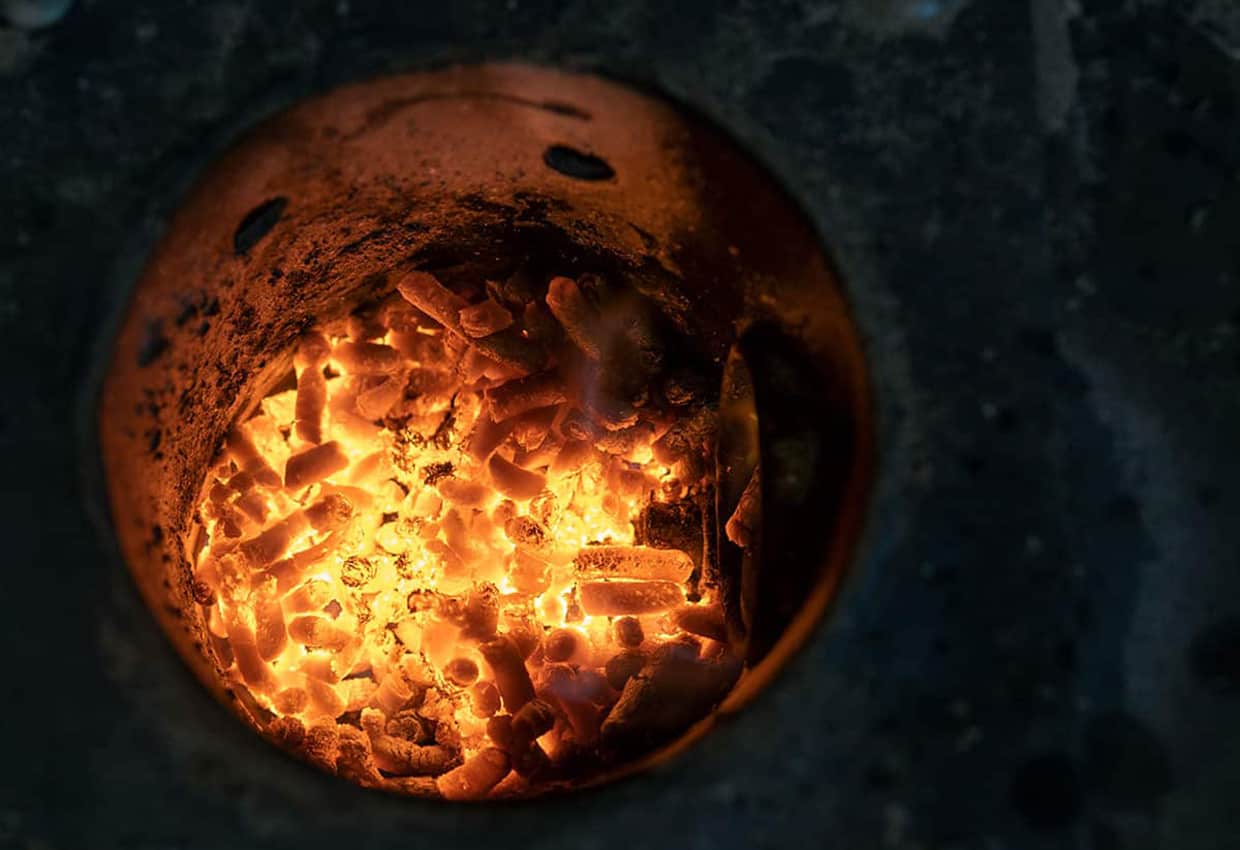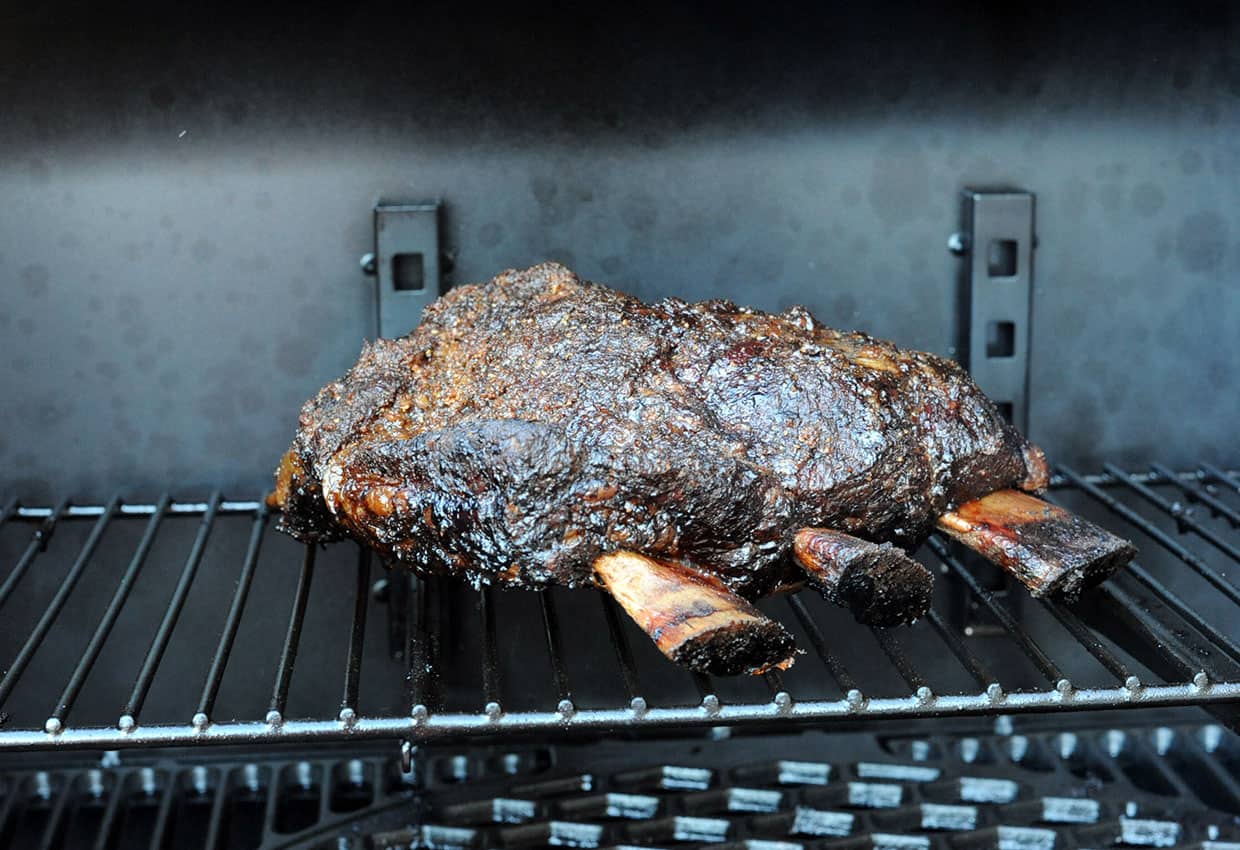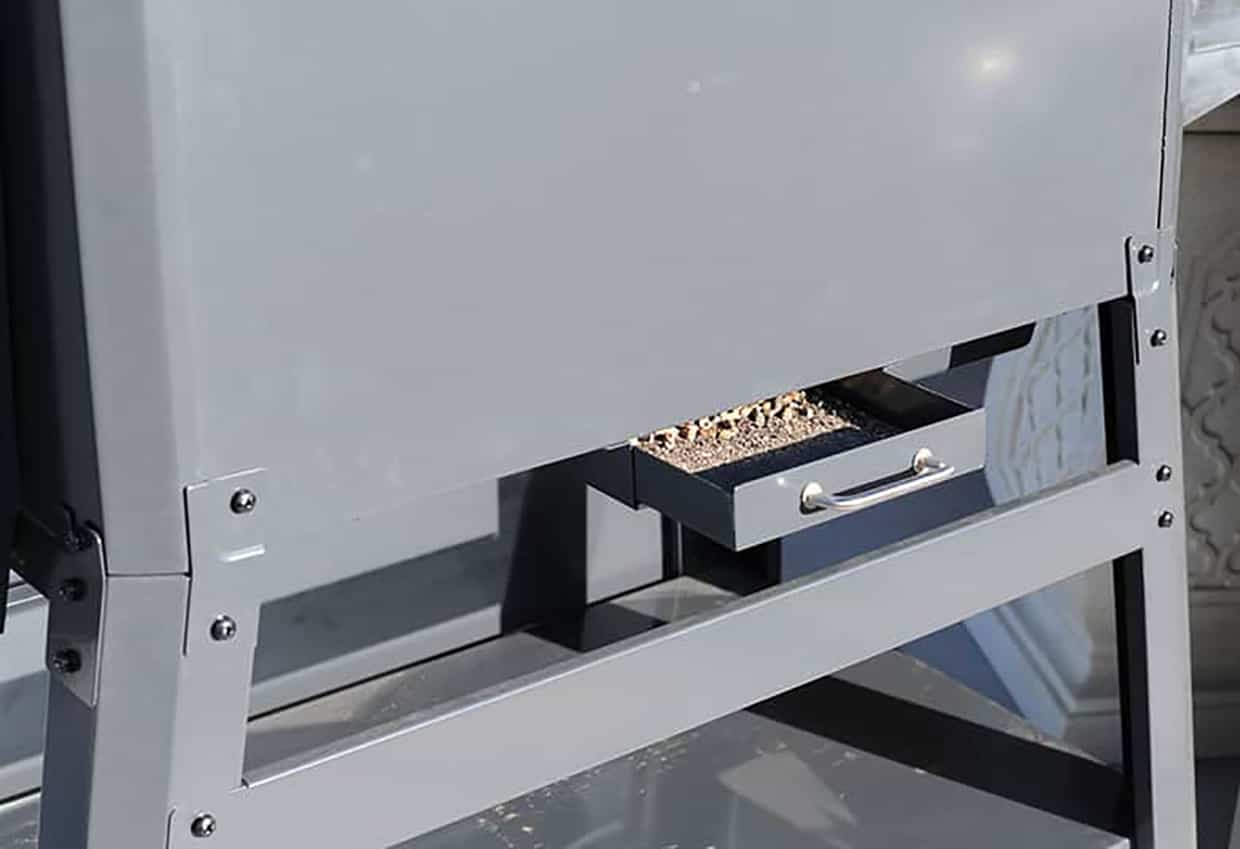Long gone are the days when you have to slave over a fire to create amazing barbecue. With the advancement of the pellet smoker, you can cook up a backyard BBQ feast while lounging poolside.

Pellet smokers offer a combination of convenience and flavor with precision-engineered technology. They basically do all the hard work for you while you get to bask in the glory and relish the compliments.
With a few pellet smoker accessories, you can enhance your smoke game even more.
Parts of a pellet smoker
To unveil the magic of how a pellet smoker works, it’s important to look at its different features.
Hopper
The hopper is generally located on the side of a pellet smoker, although some models have hoppers in the back. This box is where you load your wood pellets.
Capacity varies from model to model, but almost all of them hold enough pellets to last for several cooks.

Control panel
What makes pellet smokers different from most other wood-burning grills is that they are digitally controlled via an electric control panel.
From the panel, you program the grill’s temperature. The panel will provide a read-out of the set temperature and the actual grill temperature.
Some models are very accurate while less expensive pellet smokers may vary by as much as 25 degrees.
The control panel may also include a port for digital thermometers. With this feature, you can see the actual temperature of your meat as it is cooking, so you know when it is done cooking without opening the grill.
Auger system
Once the pellets are loaded into the hopper and the temperature is programmed, an auger will rotate and drive the pellets into the firepot. The auger looks like a very large drill bit.
The higher you set the grill temperature, the faster the auger will turn because the more fuel your grill will need to maintain the desired temperature.
Some models have a button on the control panel that will allow you to manually rotate the auger. This is helpful when you want to clean out the grill and fully remove all pellets.
Firepot
The firepot is where the magic happens. Once the auger delivers the pellets to the firepot, the combustion chamber ignites, and the wood pellets start to smoke and create heat.
An electric fan works in conjunction with the speed of the auger and a thermostat to determine how much oxygen is needed in the firepot to manage consistent heat.

Cooking chamber
Inside the cooking chamber, the firepot may be covered with a metal box to deflect some of the heat. On top of that, pellet smokers include a metal deflector plate that rests under the grill grates.
The deflector plate provides a constant indirect heat zone, which is what you need for making recipes like smoked brisket or a great rack of St. Louis-style ribs or smoked ribeye.
Grease control system
When cooking fattier pieces of meat like pork belly burnt ends or smoked pulled pork, you will have a lot of grease drippings.
Pellet grills are designed so that the fat should drip away from the fire pot toward a pan or bucket where it can later be discarded. It’s important to make sure your pellet grill is on a level surface, so the fat drains properly.
Cooking app
Many pellet smokers come with free downloadable phone apps that allow you to control the grill’s heat from the palm of your hand. They generally connect to your home Wi-Fi or via Bluetooth.
Some more advanced apps even offer recipes that automatically adjust the grill’s temperature during different stages of the cook.
FDL’S 75 Best Bites

Our cookbook with 75 tasty recipes will be your go-to kitchen companion for easy dinners with ad-free recipes right at your fingertips. Crafted by experienced chefs and recipe developers, this collection offers a treasure trove of tried-and-true dishes that make mealtime a breeze.
Get the Recipe: FDL’S 75 Best Bites
Advantages of a pellet smoker
Pellet smokers used to catch a lot of heat in the barbecue world. Professional pitmasters considered them a Crock-Pot of grills because they’re so easy to use.
A primary part of barbecue is understanding heat management, and the pellet smoker takes away the need to master that skill set.
But the advantage that it does bring to the barbecue scene is that it makes barbecue approachable to almost everyone. Now, cooks can season their food, push a button and smoke food without having to worry if their grill is getting too hot or too cold.
So long as you have wood pellets loaded in the hopper and you’re following a trusted recipe, it’s hard to fail.
“I love my pellet grill! I hardly use my regular grill anymore because it’s just that useful! I love that it can go from a smoker to a grill to an oven and it cooks so many things. I get genuine smoke rings on all my meats, and it’s so much less fuss to use than a wood-fired smoker.”
– Chef Jenn Allen, Grill What You Love
Cleaning a pellet smoker is easy, too, depending on your model. Wood pellets produce very little ash, so there isn’t much residue left behind.

Newer models allow you to pull a lever from under the grill to empty the ash that collects in the firepot. Others offer ports where you can insert a shop vac to suck out the ash.
Older and less expensive models require you to remove the grill grates and heat deflector to access the firepot and remove the ash.
Besides removing the ash, you just need to keep your grill grates and deflector plate clean and empty the grease trap every few cooks. Cover the deflector plate in heavy-duty foil to cut your cleanup time in half.
One final advantage of a pellet smoker is that it can be used for all sorts of recipes, including smoked macaroni and cheese, smoked baked beans and virtually anything that you would bake in the oven.
This is because the heat is indirect and circulates throughout the chamber via the fan. The most concentrated heat tends to be over the firepot, so adjust for that if you’re cooking more delicate recipes like quiche or cookies.
Disadvantages of a pellet smoker
The amount of smoke you get while cooking on a pellet smoker varies, depending on what temperature you’re cooking at. The lower the temp, the more smoke. The hotter the temperature, the less smoke.
This is because, at hotter temperatures, the wood pellets burn more quickly so they don’t smolder and create smoke. To adjust for this, you can add a pellet tube inside the smoker that will create more smoke flavor in the chamber.
Although wood pellets are made of compressed sawdust, the flavor is slightly different from charcoal briquets, lump charcoal, and wood chips or chunks. If you really love the flavor of charcoal, consider using charcoal-infused pellets.
“When it comes to ease and convenience, it’s hard to top a pellet smoker. We’ve used ours when prepping pork butts for over 450 people solely for consistency. Our trick to getting great flavor is using charcoal pellets and adding wood chunks to the back corners of the grill grates to add authentic barbecue flavor.”
– Kita R, Girl Carnivore
Because pellet smokers cook with indirect heat, some are not as great at grilling foods hot and fast. Several companies have added features to the deflector plate that allows it to open partially. The opening lets direct heat come through for high-heat grilling.
However, sometimes when it’s closed high heat still can come through, which can impact your smoking temperatures. It’s important to find the hot spots on any grill or smoker you buy.
Check out this guide to help you grill the perfect burger on a pellet grill.
Pellet smokers offer a unique combination of convenience, versatility and flavor that make them a great option for outdoor cooking enthusiasts.
If you’re still shopping around, check out the best grills to buy this summer.